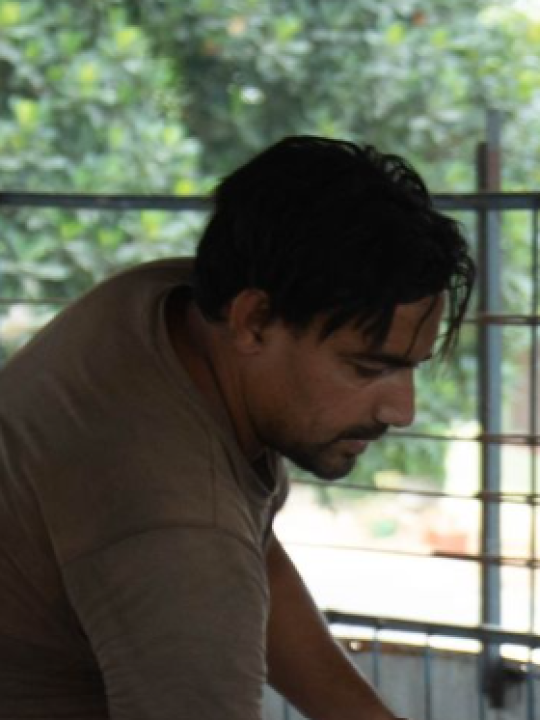Bishnu Pandey
Transforming Tradition: Bishnu's Goat Farming Success
Bishnu Pandey grew up in a family involved in subsistence farming in Nepal. His early years were marked by a deep connection to the land and livestock, often preferring the company of animals over playing with friends.
Despite his family's involvement in farming, it was merely to survive rather than to earn a living. Bishnu initially considered going abroad for work, like many others from his village. He even joined Korean language classes with his friends and appeared for the EPS exams. However, he eventually decided to stay in Nepal, driven by his passion for working with livestock.
Initially, Bishnu started a dairy depot in his village, which quickly became successful. However, his passion for livestock led him to venture into goat farming. Inspired by a YouTube video of a farmer in Chitwan breeding goats, Bishnu saw the potential in importing Boer goats and designed his shed accordingly. He realized that goat farming could significantly contribute to Nepal's economy and create job opportunities. Despite strong opposition from his family and friends, he shut down his thriving dairy depot and invested in importing three Boer goats from Australia and buying 20 local female goats.
Today, Ankita Krishi Tatha Pasu Bikas Kendra, named after his younger daughter, is a thriving business housing 90 Boer and hybrid goats. Bishnu's dedication and innovative approach have transformed his farm into a model of success in the region. The business now generates significant income, with the first purebred Boer kids selling for an average of Rs. 190,000 each. This financial success has allowed him to employ two people and receive support from his wife, Laxmi, in running the farm.
Bishnu's journey took a transformative turn when he became part of Daayitwa's Rural Entrepreneurship Acceleration Program (REAP). The program provided him with essential business strategies and insights that were crucial for the success of his goat farming venture. Through REAP, Bishnu received comprehensive training sessions, workshops, and mentorship opportunities that equipped him with the knowledge to manage his farm effectively. He learned modern farming techniques, financial management, and strategic planning, all of which played a significant role in the growth and sustainability of his business.
Bishnu Pandey's success has established him as a local expert and leader in goat farming. People from other districts now seek his guidance, recognizing his expertise and innovative approach. His role as a community leader has also fostered cooperation and knowledge sharing among local farmers. Bishnu's willingness to share his insights and experiences has helped build a stronger, more resilient farming community, contributing to the overall sustainability of agricultural practices in the region.
Despite the challenges and hard work, Bishnu finds deep satisfaction and fulfilment in his work. His decision to stay in Nepal and invest in goat farming reflects his commitment to contributing to the country's economic progress through sustainable agriculture. Bishnu believes that goat farming can help Nepal become self-reliant and create job opportunities, reducing the need for people to migrate abroad for work. His story is a testament to the potential of rural entrepreneurship in driving economic development and improving livelihoods.
Since starting his goat farming venture, Bishnu has seen significant financial growth. The first year of operation was challenging, with difficulty breaking even, but his perseverance paid off. Today, the Ankita Krishi Tatha Pasu Bikas Kendra generates an annual income of over Rs. 2,000,000. The farm's success has enabled Bishnu to employ two full-time workers, providing much-needed jobs in his community. This employment not only supports the local economy but also offers valuable experience and training for others interested in goat farming.
Bishnu Pandey's journey from a subsistence farmer's son to a successful goat farmer and community leader is a powerful illustration of the impact of Daayitwa's REAP program. Through targeted support and essential training, Bishnu has built a thriving farming business that not only sustains his family but also inspires others in his community. His dedication, resilience, and innovative approach highlight the potential for sustainable growth and development in Nepal's rural areas. Bishnu's story serves as an inspiration for aspiring entrepreneurs, showcasing the possibilities that arise from staying in Nepal and investing in its agricultural future.

